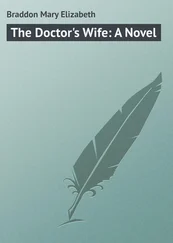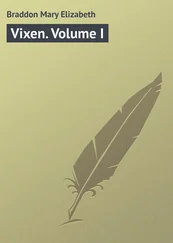Mary Braddon - Mohawks - A Novel. Volume 1 of 3
Здесь есть возможность читать онлайн «Mary Braddon - Mohawks - A Novel. Volume 1 of 3» — ознакомительный отрывок электронной книги совершенно бесплатно, а после прочтения отрывка купить полную версию. В некоторых случаях можно слушать аудио, скачать через торрент в формате fb2 и присутствует краткое содержание. Жанр: foreign_prose, на английском языке. Описание произведения, (предисловие) а так же отзывы посетителей доступны на портале библиотеки ЛибКат.
- Название:Mohawks: A Novel. Volume 1 of 3
- Автор:
- Жанр:
- Год:неизвестен
- ISBN:нет данных
- Рейтинг книги:5 / 5. Голосов: 1
-
Избранное:Добавить в избранное
- Отзывы:
-
Ваша оценка:
- 100
- 1
- 2
- 3
- 4
- 5
Mohawks: A Novel. Volume 1 of 3: краткое содержание, описание и аннотация
Предлагаем к чтению аннотацию, описание, краткое содержание или предисловие (зависит от того, что написал сам автор книги «Mohawks: A Novel. Volume 1 of 3»). Если вы не нашли необходимую информацию о книге — напишите в комментариях, мы постараемся отыскать её.
Mohawks: A Novel. Volume 1 of 3 — читать онлайн ознакомительный отрывок
Ниже представлен текст книги, разбитый по страницам. Система сохранения места последней прочитанной страницы, позволяет с удобством читать онлайн бесплатно книгу «Mohawks: A Novel. Volume 1 of 3», без необходимости каждый раз заново искать на чём Вы остановились. Поставьте закладку, и сможете в любой момент перейти на страницу, на которой закончили чтение.
Интервал:
Закладка:
"A well-looking fellow enough before want and sickness came upon him," said the Squire. "Did you find anything about him to give a clue to his name or his belongings?"
"Nothing but this," said Bowman, handing his landlord the papers in the cotton handkerchief.
Squire Bosworth sat with thoughtful brow, looking over pamphlets and manuscripts.
"Just as I thought," he said at last: "the fellow was a plotter, a tool of the Muggite crew, a hack scribbler, sowing the seeds of civil war and revolution with big words and fine sentences, a little Latin and a little Greek. He found he could not live upon his trash – was on the tramp for Portsmouth, I dare swear, meaning to get out of the country, to make his way to America, perhaps, before the mast; as if his wasted carcass would be worth board and lodging where thews and sinews are wanted! Poor devil! a sorry end for his talents. I'll ride to the village and tell the constable to send for the body."
"And the baby, Squire?" urged Bowman. "Do you mean to adopt it?"
"Adopt! That's a big word, farmer, and means a good deal. I'll think about it, friend, I'll think about it. If it's a girl, perhaps yes. If it's a boy, decidedly no."
He rode off with the bundle of papers in his pocket, leaving his tenant full of wonder. What could the Squire, whose miserly habits and want of common humanity were the talk of the county, what could such as he mean by taking compassion upon a nameless brat picked up on the wayside? What magical change had come over his disposition which prompted Roland Bosworth to an act of charity?
Nothing was further than charity from the Squire's thoughts as he rode to Flamestead; but he was a man of reflective temper, and he always looked far ahead into the future. Ten months ago his fair young wife had died, leaving him an only child – a daughter of half a year old – and now the child was sixteen months old, and her nurse had told him that she began to pine in the silence and seclusion of a house which was like a hermitage, and gardens which were gloomy and lonesome as a desert wilderness. He had poohpoohed the nurse's complaint. "'Tis you, woman, who want more company, not that baby," he had said; but after this he had been more observant of his daughter, and he had noticed that the baby's large blue eyes shone out of a pale old-looking face, which was not what a baby's face should be. The eyes themselves had a mournful yearning look, as if seeking something that was never found.
"Babies never thrive in a house where there are no children," said the nurse; and the Squire began to believe her.
The child sickened soon after this with some slight infantile ailment, and Mr. Bosworth took occasion to question the doctor as to the nurse's theory. The medico admitted that there was some reason in the woman's view. Children always throve best who had the society of other children. Fairmile Court was one of the finest places within fifty miles of London, but it was doubtless somewhat secluded and silent – there was even an air of gloom. Mr. Bosworth had allowed the timber to grow to an extent which, looked at from the point of view of health and cheerfulness —
"I am not going to cut down my trees to gratify any doctor in Christendom!" cried the Squire savagely; "but if you say my little girl wants another little girl to play with her, one must be got."
This had all happened about a fortnight before that September morning when the fatherless baby was found sleeping so peacefully beside the dead. The Squire had shrunk from introducing a stranger's brat into that stately desolate home of his, which it had been the business of his later years to keep closed against all the world. In his solitary rides he had reconnoitred many a farmer's homestead where children swarmed; he had looked in upon his gamekeeper's and gardener's cottages, where it seemed to him there was ever a plethora of babies; but he could not bring himself to invite one of these superfluous brats to take up its abode with him, to lie cheek by jowl with his dead wife's fair young daughter – a child whose lineage was alike ancient and honourable on the side of mother and father. His soul revolted against the spawn of the day-labourer or even of the tenant-farmer; and he hated the idea of the link which such an adoption would make between him and a whole family of his inferiors.
Thus it happened that the finding of that friendless child upon the common seemed to Squire Bosworth as a stroke of luck. Here was a child who, judging from the dead father's type, was of gentle blood. Here was a child whom none could ever claim from him, upon whose existence no greedy father or harpy mother could ever found a claim to favours from him. Here he would be safe. The child would be his goods, his chattel, to deal with as he pleased – to be flung out of doors by and by, when his own girl was grown up, should it so please him, or should she deserve no more generous treatment.
He saw the village constable, arranged for inquest and burial, and then put his horse at a sharp trot, and rode back to Fairmile Court as fast as the animal would take him. The house lay some way from the high-road in a park of considerable extent, and where the timber and underwood had been allowed to grow as in a forest for the last half-century. The result was wild but beautiful; the place seemed rather a chase than a park. The fine old gardens surrounding the house had also been neglected, one gardener and a boy sufficing where once seven or eight men had laboured; but these gardens were beautiful even in neglect. The hedges of yew and cedar, the rich variety of shrubs, testified to a period when country gentlemen deemed no care or cost too much for the maintenance and improvement of their grounds – men of the school of Evelyn and Temple, with whom horticulture was a passion.
The house was a gloomy pile of gray stone, built in the reign of James I. Tall gables, taller chimney-stacks, heavily mullioned windows, and much overhanging greenery gave a picturesque air to the exterior; but within all was gloom – a gloom which had been deepening for the last ten years, when, after leading a wild life at the University, and a much wilder life in London, Roland Bosworth sobered down all of a sudden, left off spending money, renounced all the habits and all the acquaintances of his riotous youth, and began to look after his patrimonial estate. In order the better to do this he took up his abode at Fairmile Court, going up to London by the coach once a week to look after his business in the City, where he was a person of some importance on 'Change. The political arena offering few allurements to a man of his temperament, he had taken to stock-jobbing, which had lately come into fashion. By education he was a High Churchman and staunch Tory, as his father and grandfather had been before him, and his adherence to the tenets of Laud and Atterbury was all the more disinterested, as he rarely entered a tabernacle of any kind. He affected to be warmly attached to the exiled king, and he was one of those lukewarm Jacobites who contrived to carry on a mild philandering kind of connection with Saint-Germains, so cautious that it could be disavowed at any moment of danger – a feeble and wavering partisanship which helped to keep the cause of the Stuarts alive, and prevented it from ever succeeding.
Things had been going to ruin at Fairmile Court during his absence, money had been squandered by old servants, and his gamekeepers had been sleeping partners with a thriving firm of poachers. But the Squire introduced a new régime of strictest economy. He dismissed all the old servants, and was a hard taskmaster to the diminished household which he established in their place. At thirty years of age he had turned his back upon the town, a soured and disappointed man. At forty he had nearly doubled his fortune by successful speculations in the City, whither he went very often by coach or on horseback, as the fancy moved him. At seven-and-thirty he married the youngest daughter of a needy peer, whose father's necessities flung her into his arms. The uncongenial union, which involved parting from one she devotedly loved, broke the girl's heart, and she died ten months after the birth of her first child. On her death-bed, when weeping mother and conscience-stricken father stood beside her, sensible of the wrong they had done, she had no complaint to make against the hard, cold-hearted man whom she had sworn to honour and obey. He had not been unkind to her. He had loved her after his fashion, and he sat a little way off with covered face and head bowed in grief. He had loved her: but he had loved his money better, and he had done nothing to brighten her young life or to reconcile her to a forced marriage.
Читать дальшеИнтервал:
Закладка:
Похожие книги на «Mohawks: A Novel. Volume 1 of 3»
Представляем Вашему вниманию похожие книги на «Mohawks: A Novel. Volume 1 of 3» списком для выбора. Мы отобрали схожую по названию и смыслу литературу в надежде предоставить читателям больше вариантов отыскать новые, интересные, ещё непрочитанные произведения.
Обсуждение, отзывы о книге «Mohawks: A Novel. Volume 1 of 3» и просто собственные мнения читателей. Оставьте ваши комментарии, напишите, что Вы думаете о произведении, его смысле или главных героях. Укажите что конкретно понравилось, а что нет, и почему Вы так считаете.












